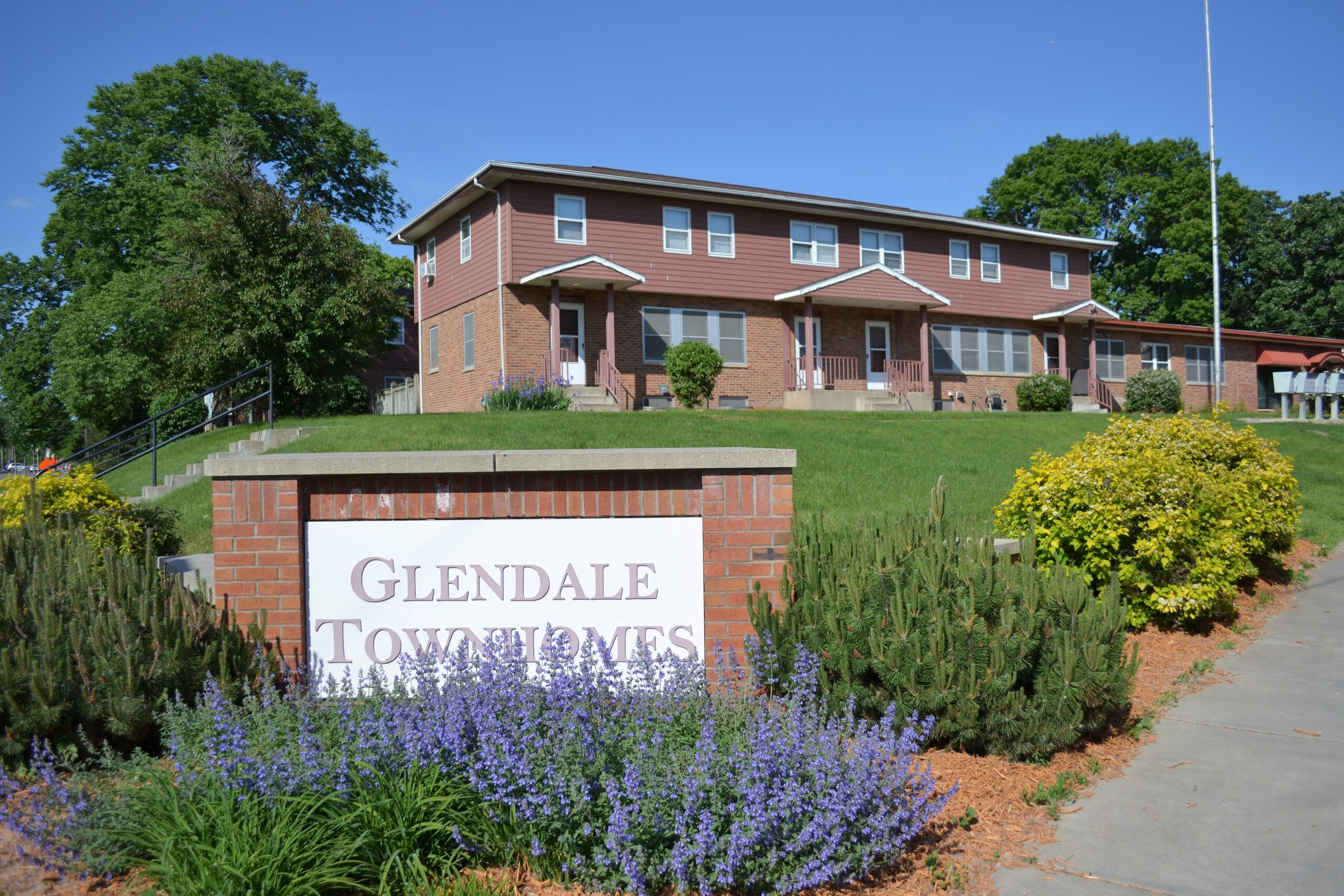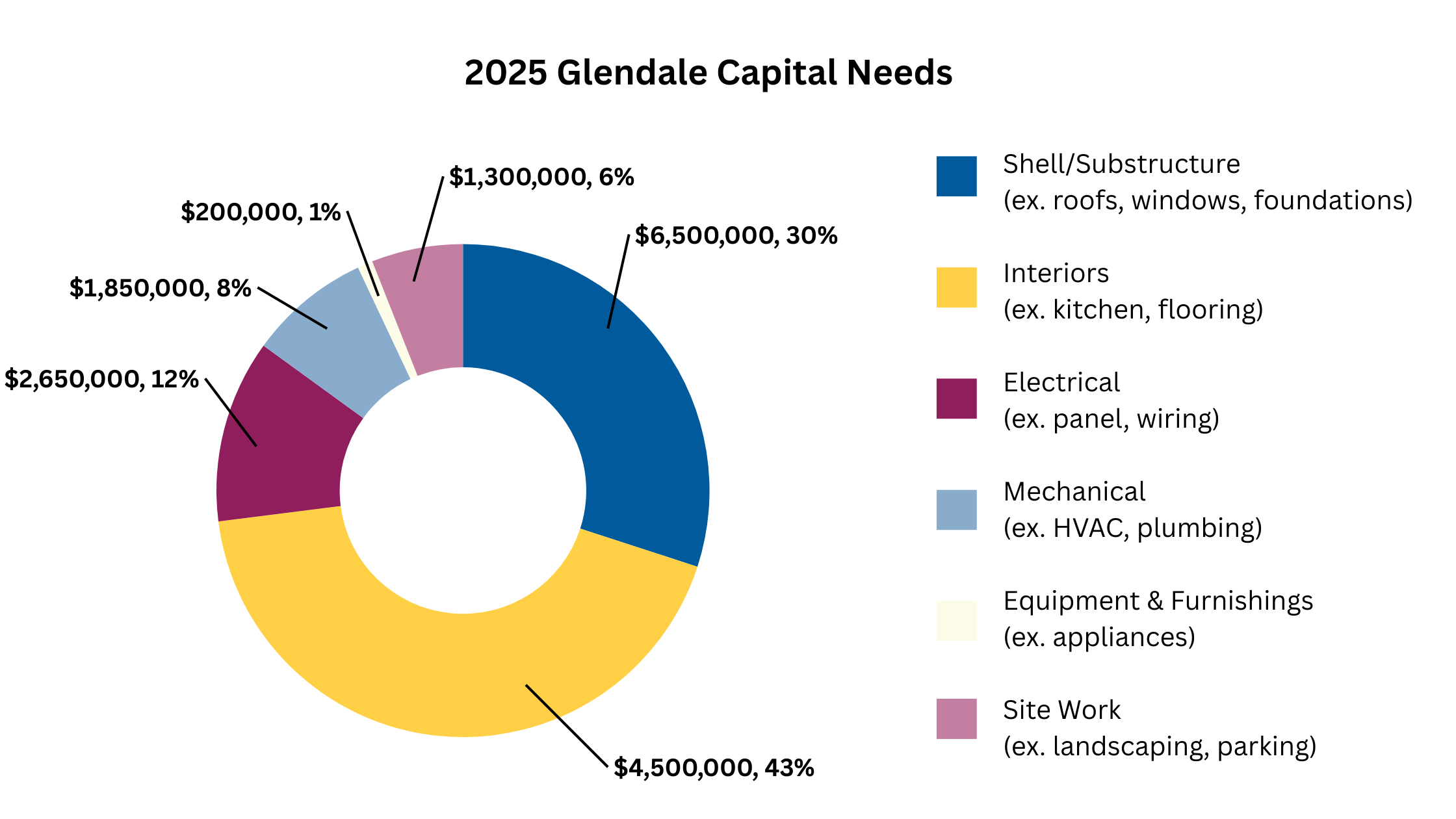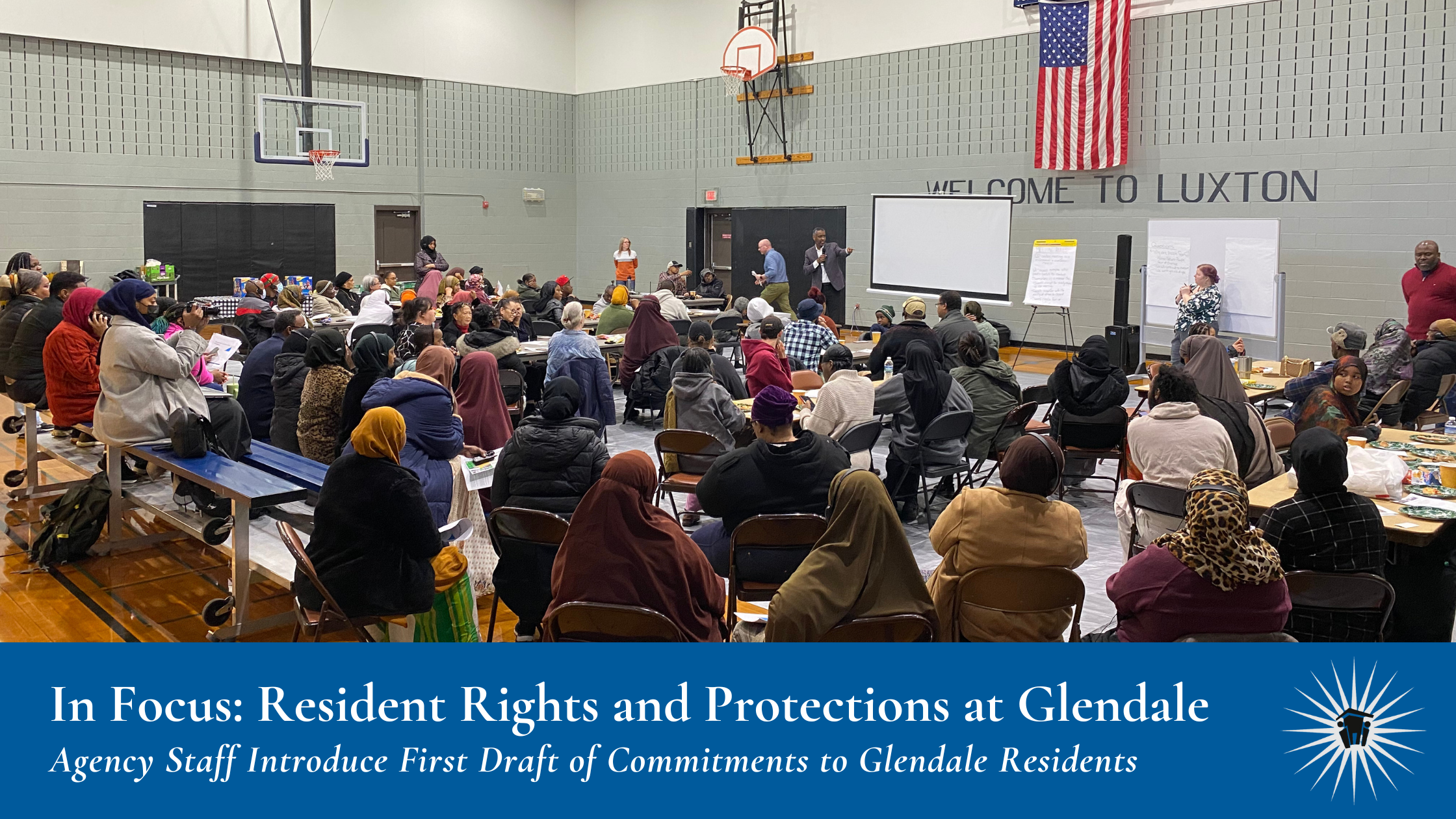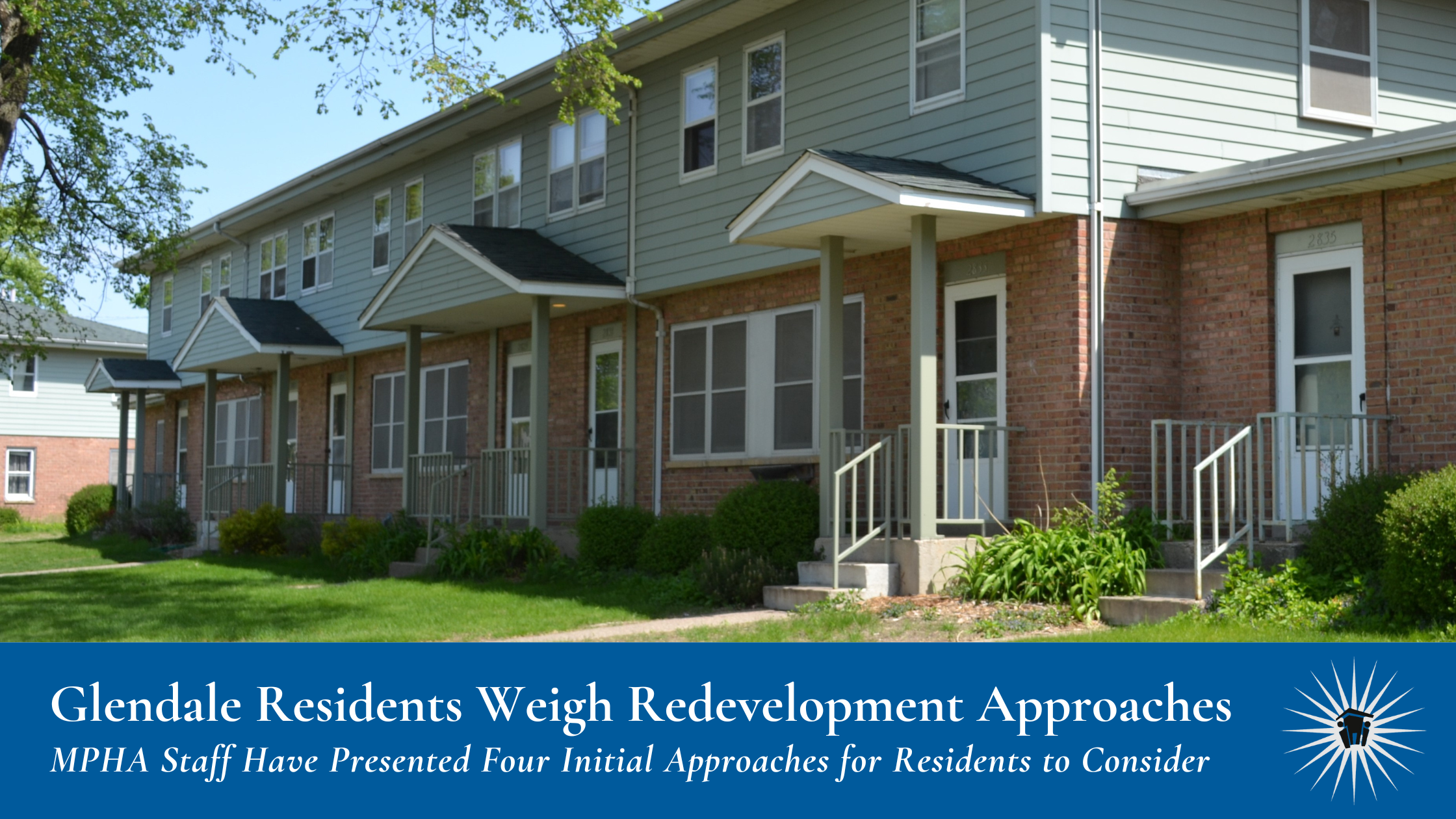Glendale Townhomes

Built in 1952, more than 2,000 families have called Glendale home over the decades. Nestled in the transit-rich Prospect Park neighborhood, Glendale boasts access to an early childhood Head Start program and Luxton Park and its recreation center, along with proximity to the University of Minnesota and its many resources. Through the years, Glendale has become a cultural corridor for many refugee families–from Southeast Asia to East Africa–and recently celebrated its 70th anniversary.
Today, nearly 600 people call Glendale home. Eighty-nine percent of residents are Black/African American, 49 percent are children, 41 percent of households are families of five or more, and nearly 20 percent of households have a family member with a disability. Among heads of household, 67 percent have an earned income, with a median annual income of nearly $31,000.
A Growing Challenge at Glendale
Historically, the U.S. Department of Housing and Urban Development (HUD) has only provided MPHA 10 percent of the annual capital funding the agency needs to maintain its nearly 6,000 units. Following decades of compounded federal disinvestment, MPHA faces a capital backlog estimated at $260 million for its entire portfolio.
At Glendale, that capital backlog is currently estimated at more than $22 million across the community’s 184 townhomes. Glendale offers 26 one-bedrooms (seven being one-level units), 70 two-bedrooms, 70 three-bedrooms, and 18 four-bedrooms. And while Glendale only accounts for about three percent of the agency’s entire portfolio of units, it makes up more than eight percent of the agency’s entire capital backlog. In the coming years, these properties will require a major capital infusion and repair effort to preserve this vibrant community.
Residents Shaping The Future
Since late 2024, MPHA has hosted a series of listening sessions with Glendale residents to learn more about how residents feel about their homes and to discuss the current challenges associated with the capital backlog at Glendale. Residents shared stories about the lack of accessibility limiting wheelchair-bound residents, how families with many children must share a single bathroom, and the need for better indoor air quality and air conditioning.
Through these conversations, residents have requested agency staff develop long-term preservation and/or redevelopment options for residents to consider. As a result, MPHA staff developed a rubric of 11 resident priorities to evaluate any potential renovation and/or redevelopment.
In February 2025, MPHA staff presented four initial renovation and redevelopment approaches that centered residents’ 11 stated priorities for consideration and feedback. In April, staff presented an initial set of commitments to Glendale families to accompany any large-scale construction. And in May, staff detailed what a sample construction timeline would look like so residents know what to expect with any construction/redevelopment at Glendale in the future. Along the way, staff continue to work with residents to refine these various guiding documents.
From these feedback sessions and by leveraging learnings from the Elliot Twins RAD, Springs Manor RAD, and the Family Housing Expansion Project, MPHA staff are working to finalize the framework that will guide the future of Glendale by summer 2025.
Upcoming Resident Meetings
Wednesday, July 30, 2025 4:30pm – 6:30pm
Luxton Park Recreation Center
Past Meeting Materials
May 29, 2025 — Meeting Summary
Materials in English and Somali (Af-Somaali)
May 3, 2025 — Meeting Summary
Materials in English and Somali (Af-Somaali)
April 5, 2025 — Meeting Summary
Materials in English and Somali (Af-Somaali)
February 25, 2025 — Meeting Summary
Materials in English and Somali (Af-Somaali)
January 28, 2025 — Meeting Summary
December 19, 2024 — Meeting Summary






